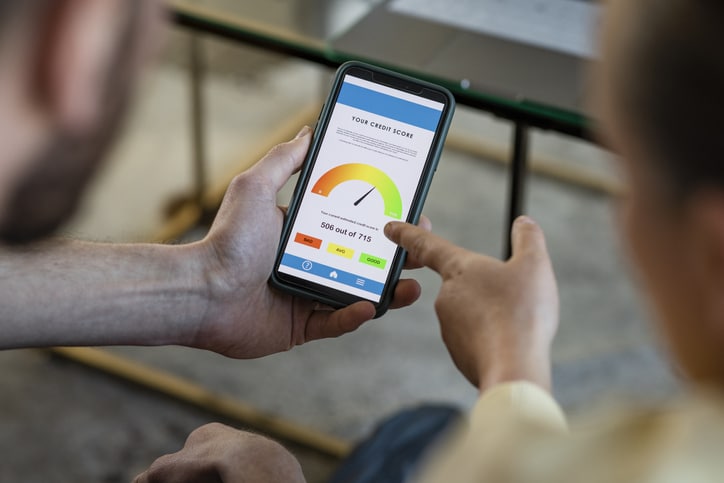Dick Hannah Dick Says Yes 1200 NE 95th St Vancouver, WA
What Do Car Dealerships Look at for Financing
May 31, 2023
Owning a car provides significant convenience, which is why buying one is commonly anyone’s priority. However, cars do not come cheap. Fortunately, most car dealerships accept financing, making it easier for people to purchase their cars.
If you plan to purchase a car through financing, you might wonder, “What do car dealerships look at for financing?”
You can finance a car in several ways, and financing a car is not complicated. Once you understand the requirements and process, you’ll be able to prepare and choose the right options for you.
What Do Car Dealerships Look at for Financing?
Cars come at a hefty price, and most people need help purchasing one. This is where financing comes in.
Car financing is the process of obtaining funds to purchase a car through a loan. It allows you to spread out the cost of your car and make your purchase more manageable. You will be able to enjoy your car while you are paying a significantly smaller amount over a certain period. This can be done through lenders, such as banks, or even through your dealership.
When planning to purchase a car through financing, you should be able to prove that you are capable of paying for your vehicle. You have to be aware of what car dealerships look at for financing.
Credit Score: Why It Matters and How to Check It
What do car dealerships look at for financing? The first thing car dealerships or lenders will check is your credit score. Your credit score determines the risk of lending you money and is an indicator of your capacity to finance a car. Cedit scores are calculated using information from your borrowing and repayment activities, and several agencies use these credit reports in their scoring models to determine your credit score.
Your credit score has a significant impact on your financing application. Since it helps car dealerships gauge your capacity to pay and the possibility of you defaulting on your loan, it is the basis of several factors in your financing application.
- Interest Rates: Your credit score affects the interest rate of your car financing. A high credit score usually translates to lower interest rates; inversely, a lower credit score can get you a higher interest rate.
- Terms: The length of your financing is also affected by your credit score. If you have a good credit score, you can get a more flexible term, such as a more extended repayment period.
- Approval: Finally, your credit score can be the deciding factor in whether or not you will be approved for financing.
You must be aware of your credit score when applying for car financing since it greatly impacts your application’s conditions. You can authorize your car dealership to obtain your credit score for you, or you can request a copy from AnnualCreditReport.com. This website provides a free copy of your credit report from each major credit reporting agency.
What Do Car Dealers Look for in Credit?
What does a car dealership see when they run your credit? When they run your credit, they get a report and credit score from one or more credit reporting agencies. This will help them gauge the risk of granting you car financing.
Aside from your usual information, car dealerships will also obtain information such as any previous loan defaults or repossession, late payments, signs of bankruptcy, and history of credit repair. This information will help your dealership decide how to approach your car financing application.
What Credit Score Do Car Dealers Use?
There are several agencies that calculate your credit score. Car dealerships can use any of these credit reporting agencies. However, the most commonly used by car dealers is FICO.
Fair Issac Corporation developed FICO Auto Scores to determine someone’s creditworthiness for auto financing. It is specifically for car financing applications and is used in 90% of mortgage application decisions in the United States.
FICO Auto Scores range from 300 to 850. Car dealerships usually consider a score between 670 and 739 as a “good” credit score.
What Do You Need to Provide for a Car Loan?
You must provide your car dealer with some important information when applying for car financing. It is simple and includes basic information such as your personal identification, residence, and proof of income. It is helpful to ask about your car dealership’s requirements before coming in to ensure you have everything prepared.
Proof of Identity
When applying for a car loan, submitting proof of identity is common to verify your personal information. Your car dealership may have specific requirements on the form of identification that they accept. However, government-issued identification cards such as driver’s licenses and passports are most commonly used.
When submitting your documents, make sure that they are valid, unexpired, and in good condition. Your car dealership will use this information to verify your identity to avoid identity theft or fraud. It is also advisable to keep track of any documents you have submitted. You can have your car dealership sign as proof of their receipt to safeguard your identity during your car financing application.
Proof of Residence
As part of your personal information, you will also need to provide your car dealership with your proof of residence. Car dealerships need certain documents to verify the information you give them in your application. Utility bills are usually used as proof of residence. Still, you can also use a lease or rental agreement, home ownership documents or mortgage statement, or any government-issued identification with your address.
Credit and Banking History
As mentioned earlier, car dealerships will need to request your credit report to determine if you are viable for car financing. You can provide the information or give your car dealership authorization to obtain your credit report from their credit reporting agency. Aside from this, you also need to provide your car dealership with your banking information, such as your bank statements. Your banking history gives your car dealership a picture of your cash flow and your ability to manage your finances. It shows your financial stability based on your income and expenses. Your car dealership can also require you to submit a list of credit references to vouch for your creditworthiness.
Proof of Income
What do car dealerships look at for financing? Proof of income is one of the essential information car dealerships check for car financing applications. Your proof of income will help your car dealer determine your debt-to-income ratio.
Remember that your proof of income and banking history goes hand in hand with your credit score in determining the conditions of your financing agreement. The terms, interest rates and your approval will be based on the information gathered from these documents.
To get approved with the best terms and interest rates, make sure that you manage your finances properly. Take note of your spending habits and avoid things that can lower your credit score and debt-to-income ratio.
- Avoid overdrafts from your account. Make sure that your account is always above the required minimum, maintaining balance.
- Avoid maxing out your credit cards and paying late.
- Avoid applying for new credit frequently.
Vehicle Information
Aside from your personal and financial information, you must also provide the vehicle information. Your lender will need this information to assess the value and condition of your preferred car. The assessment will affect the terms and conditions of your financing agreement. For example, an older car or one in poor condition will most likely be granted a lower loan amount with a higher interest rate, or there is also a chance that the loan will not be approved. This happens because of the risks connected with the risks of the car. Lenders or your car dealership would want to make sure that the car retains its value throughout the loan term and can serve as collateral for the loan.
The information you need to submit is just basic information on the car you intend to purchase.
- The make, model, and year of the car. These determine the marketability and value of your chosen car.
- Vehicle Identification Number (VIN). The VIN is a 17-character identification unique to each vehicle. This will give your lender detailed information about the car’s manufacturing details, history, and specifications.
- Mileage. A car’s mileage or odometer reading is usually connected to its usage. The common assumption is that the higher the mileage, the more wear and tear for the car. A car with higher mileage is priced less than one with low mileage.
Proof of Insurance
Many lenders want to make sure that their interest is protected and that your financed car is covered in the event of an accident. Since most financing uses the vehicle as collateral, you need to show that you have taken the necessary steps to protect your car.
Current Vehicle Registration if Trading in a Car
If you currently have a car, you can trade it in. Trading in your current car will reduce the total cost of the financing. To do this, you need to provide some documents about the vehicle you plan to trade in so your car dealership can appraise its value.
- Title and registration. This will show that you are the legal owner of the vehicle.
- Outstanding loans. Your car dealership needs to be aware of any existing loans for your vehicle so that they can coordinate with a lender and settle any remaining loan balance, which will affect the price of your trade-in vehicle.
- Mileage. The odometer reading reflects the usage of the vehicle, which affects its appraisal value.
Method of Down Payment
Another answer to the question “What do car dealerships look at for financing?” is the down payment, or the payment made upfront towards purchasing a car. A down payment is not always required, though it may depend on the lender or car dealership. However, it is highly recommended because it gives you more savings because you will have fewer monthly payments, and the financed amount for your car will be lower, allowing you to save on interest.
Since a down payment can be optional, the amount you pay upfront also depends on you. You can pay whatever you can afford. However, you should try to put down at least 20% to help you get better interest rates and terms for your loan.
When making your down payment, ask your car dealership or lender what methods they accept. Commonly accepted methods will be cash, check, or debit card.
Co-Signers: When and How to Involve Them
What do car dealerships look at for financing? The short answer is your capacity to pay. Car dealerships want to protect their interest by assessing your financial capacity to finish your loan. However, do you know that you may still get approved even if you have a low credit score or have gone through bankruptcy? One way to do so is to get a co-signer.
A co-signer is an individual who agrees to share the liability with you. Having a co-signer can help you get approved for your car financing. Also, since the liability is shared between you and your co-signer, your co-signer’s creditworthiness can give you better terms and interest rates.
Dick Says Yes Auto Credit Experts
Purchasing your car does not have to be complicated. At Dick Says Yes, getting your car financed is simple and easy. Whether you are a first-time buyer or with bad credit, we assure you that Dick Says Yes. Visit our website and let our team help you get that car.
Contact Us



